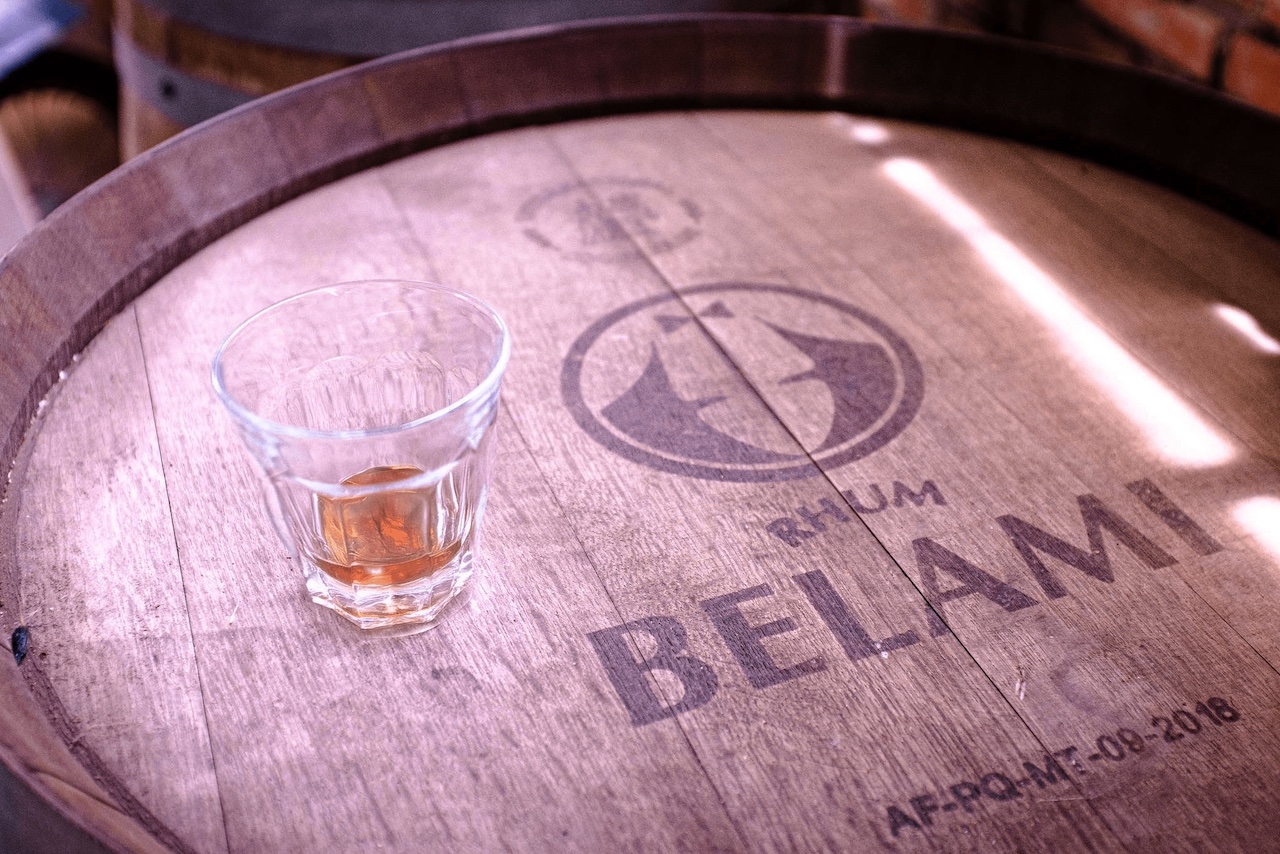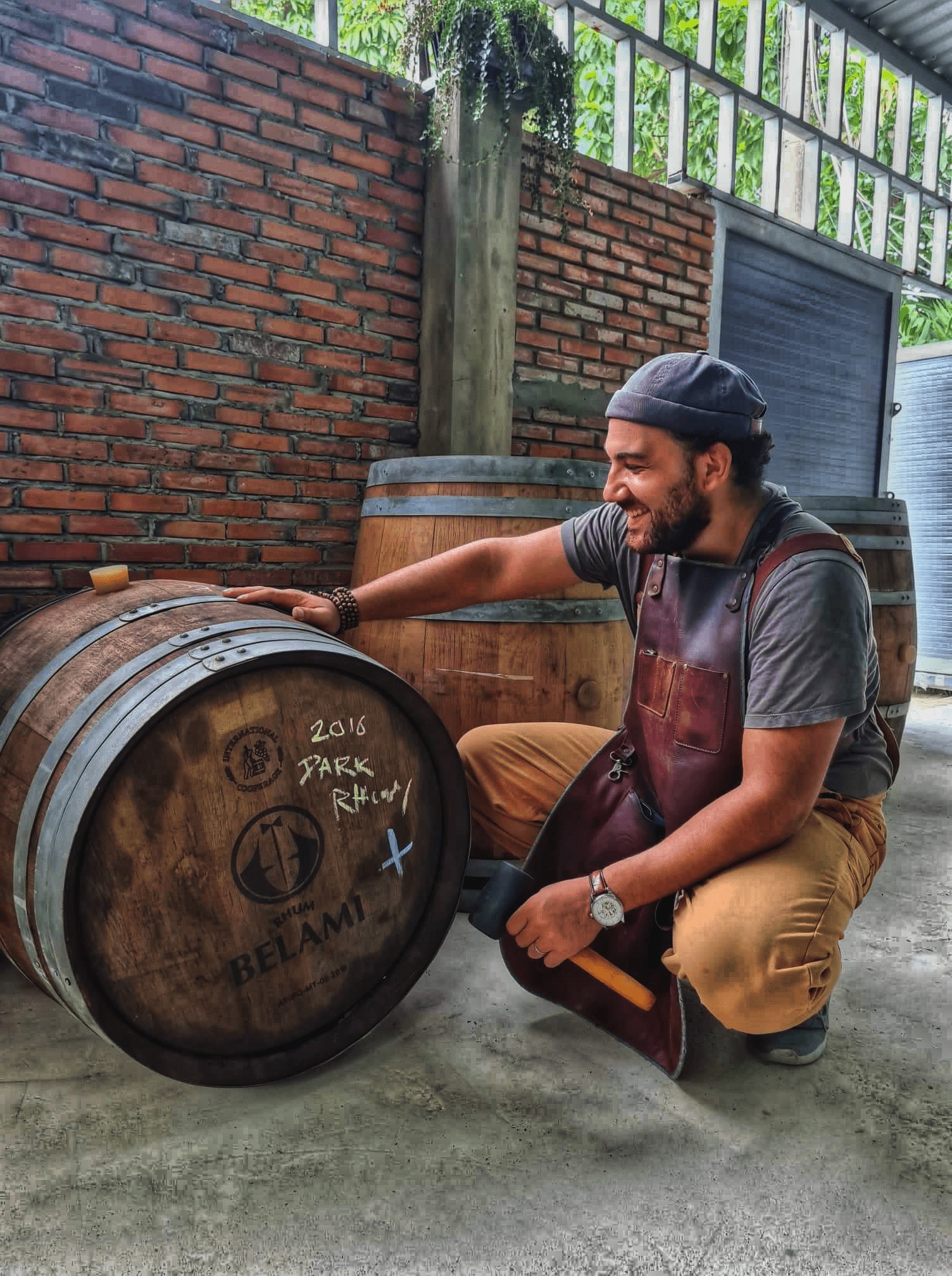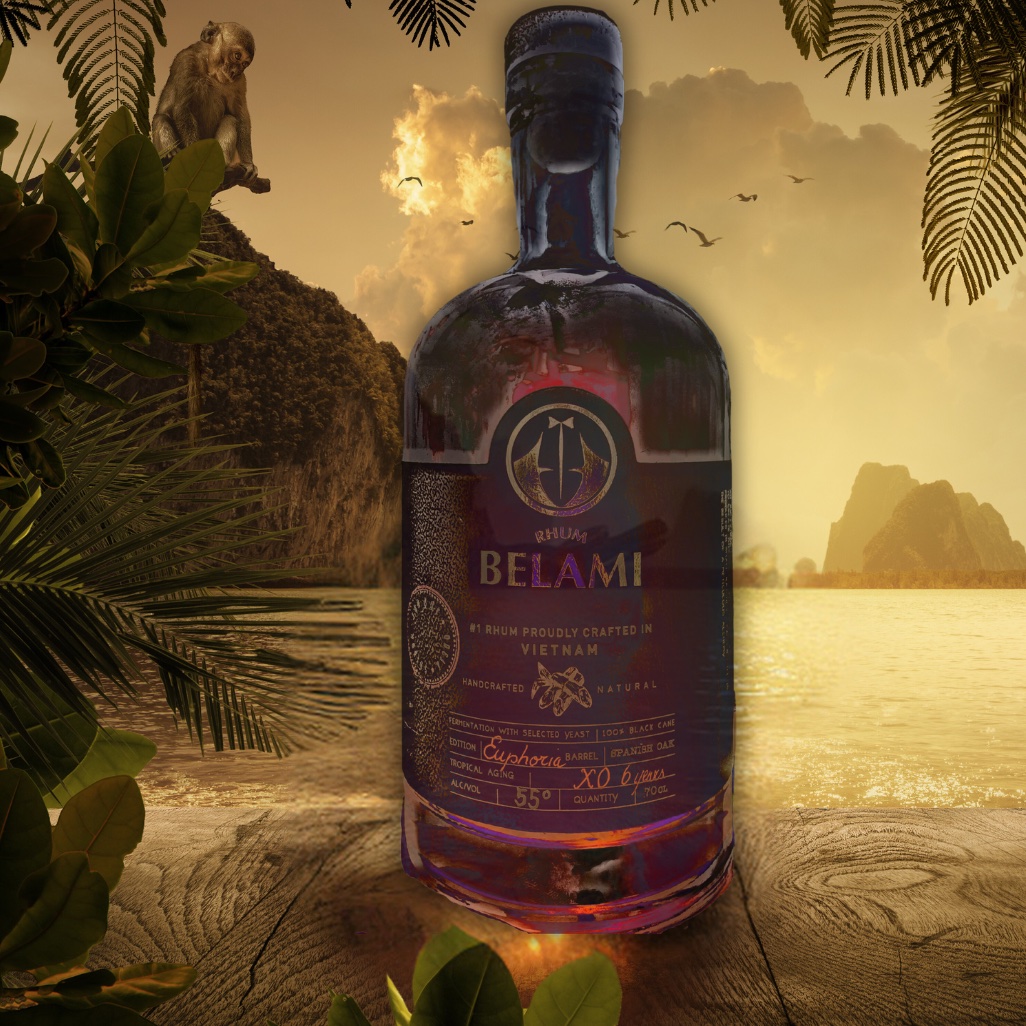Vietnam’s premium small-batch craft rhums, respectfully made with high quality, sustainably farmed local sugar cane, are waiting to be uncorked.
Text: Jocelyn Tan
Vietnam, a land known for its breathtaking landscapes and vibrant culture, is adding a surprising new chapter to its story – craft rhum. While rhum traditionally evokes images of Caribbean beaches and pirate lore, a unique fusion is brewing in Southeast Asia. Here, French ingenuity meets Vietnamese tradition, resulting in a wave of innovative and premium rhums.
The visionary founders of Rhum Belami and Sampan, each with their distinct approaches, are shaping the future of Vietnamese rhum. We delve into their world, exploring the meticulous crafting processes and unique ingredients that set their rhums apart, and discover how these French-influenced distilleries are putting Vietnamese rhum on the global map.

At the forefront of this movement stands Rhum Belami, a first-of-its-kind rhum brand in Vietnam founded by Roddy Battajon in 2016. Roddy’s connection to rhum goes beyond a simple interest; it’s deeply embedded in his family history. “Growing up, I would watch my grandmother meticulously craft rhum,” Roddy recounts. “Her influence, passion, dedication to her garden and her respect for nature shaped my brand today: I’m proud that my distillery is one of the most respectful of the environment with a solid system of reusability attached to the whole production line to value every waste we collect.”
Vietnam’s lack of premium rhum options fuelled an entrepreneurial spirit within him when he came to the country as an expatriate. “This realisation became the catalyst for Rhum Belami’s creation,” Roddy says. “It was a leap of faith, but I knew there was a place for this kind of rhum in Vietnam.” Driven by this conviction, Roddy embarked on a mission to create Vietnam’s first craft rhum, a spirit that would not only be exceptional but also pay homage to his family’s legacy.

Roddy’s French-Caribbean heritage adds a unique layer to the Rhum Belami story. While staying true to the essence of Vietnamese ingredients and traditions, these influences are subtly woven into the rhum-making process. “The pursuit of collecting the maximum of esters and congeners, (oily components sharing the quintessential of the sugar cane) is tough work requiring precision, knowledge and patience, all good stuff my family in Martinique passed down to me. I reproduced the same dedication with the farmers here in the Mekong Delta: I focus on the terroir, respect the soil, don’t use pesticides, collect the best crop in time to produce in small batches, the first rhum made in Vietnam,” Roddy proudly shares. He emphasises, “The heart of Rhum Belami is undeniably Vietnamese.”

Rhum Belami’s dedication to quality begins with the very foundation – the sugarcane. Roddy is a passionate advocate for sourcing locally, believing it not only benefits the Vietnamese economy but also allows for the freshest possible sugarcane. “The Mekong Delta, where our sugarcane comes from, has a specific soil composition that imparts subtle characteristics to our rhum. It’s like a fingerprint – a unique expression of place.” He meticulously selects specific varieties like Black Stem & ROC16, known for their high brix level (sugar content) and ability to thrive in the Vietnamese climate. The consistent sunshine and ample rainfall create ideal conditions for sugarcane growth, contributing to the high sugar content that translates into rich and flavourful rhum. “We are very particular about the sugarcane we use,” explains Roddy. His vision, however, extends beyond simply acquiring the best cane.
“High brix levels are important, but so is healthy soil. That’s why we work with farmers who prioritise sustainable practices that nurture the land.” Roddy recognises that terroir, the unique combination of climate, soil, and topography, goes beyond just weather. By embracing Vietnamese terroir, Rhum Belami allows the spirit to tell the story of its birthplace in every sip. This meticulous selection process, focusing on both the cane itself and the environment it grows in, is a cornerstone of Rhum Belami’s dedication to quality and its celebration of Vietnamese terroir.

The tireless innovator is also constantly pushing the boundaries of rhum-making. “I want to constantly learn and improve,” Roddy says. To further cement Rhum Belami as a Vietnamese brand, Roddy is keen to take inspiration from his surroundings. “Sugarcane juice is usually freshly pressed with some calamansi or fermented pineapple in it on the streets of Vietnam, so I applied the same techniques for the process of fermentation. Instead of adding chemicals for acidity in the fermentation process, I always put some natural acidity – whether that be calamansi or other native tropical fruits and wild botanicals,” he shares. “My dream alcohol was to create something universal yet produced exclusively in Vietnam.”
Indeed, Rhum Belami is a testament to local traditions, a celebration of innovation, and a pursuit of quality you can experience in every sip. It’s more than just rhum; it’s a movement you can be part of.
___
Look out for Part 2: Sampan Rhum by Distillerie d’Indochine located near Hoi An.
